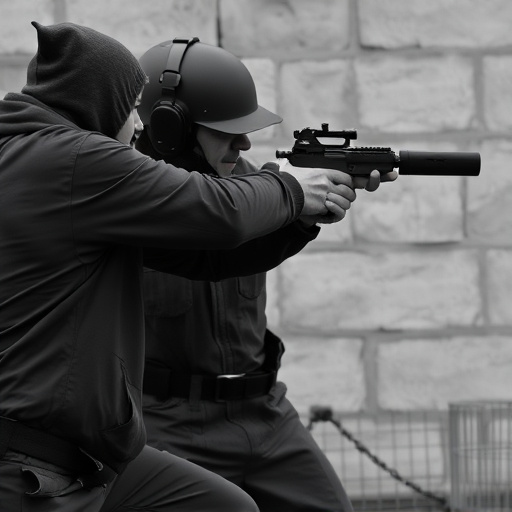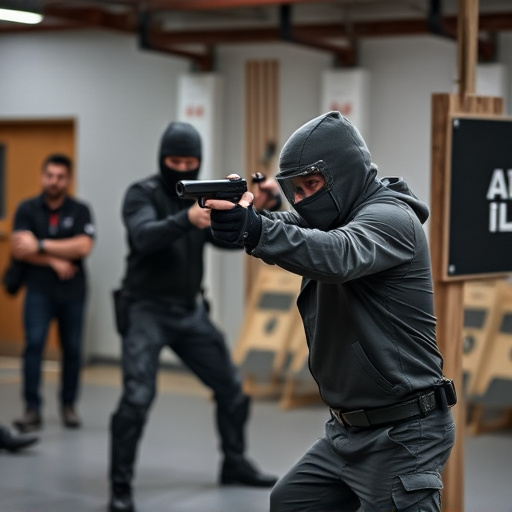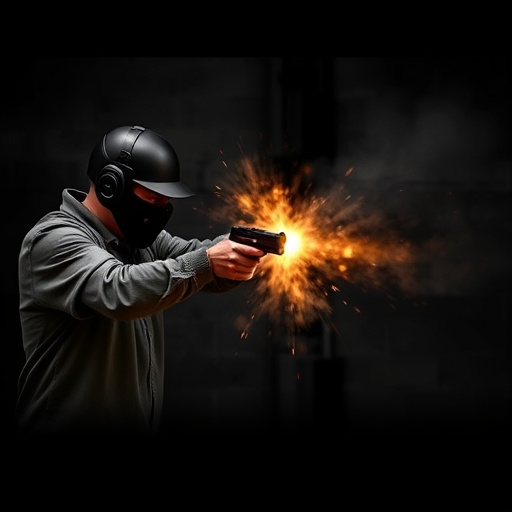Civilian Taser Ownership: State Laws & Regulations for Security
The article "Understanding Civilian Taser Ownership: A Legal Perspective" examines the leg…….
The article "Understanding Civilian Taser Ownership: A Legal Perspective" examines the legal aspects of civilian ownership of heavy-duty stun batons (tasers) in the U.S., highlighting state-by-state variations in regulations. These laws, aimed at balancing public safety and individual protection, impose strict eligibility criteria including training, background checks, age restrictions, and legitimate security needs. Individuals seeking to own these devices must understand their state's specific rules regarding licensing, training requirements, and purchasing from licensed retailers or online providers. Responsible use is emphasized through recommended training while adhering to open or concealed carry permit rules, ensuring safe and effective deployment in various security scenarios.
“Exploring civilian tasers and heavy-duty stun batons for security involves navigating intricate state laws. This comprehensive guide delves into the legal perspective of owning a civilian taser, focusing on state-specific regulations governing these powerful personal defense tools.
We’ll outline the acquisition process, shed light on varying requirements, and provide insights into ensuring compliance to carry your chosen heavy-duty stun baton legally and responsibly.”
- Understanding Civilian Taser Ownership: A Legal Perspective
- State-Specific Regulations and Requirements for Heavy-Duty Stun Batons
- The Process of Acquiring and Carrying a Civilian Taser Legally
Understanding Civilian Taser Ownership: A Legal Perspective

Understanding Civilian Taser Ownership: A Legal Perspective
In today’s world, where personal safety and security are paramount concerns, civilian ownership of heavy-duty stun batons, often known as tasers, has gained significant traction. This shift towards non-lethal self-defense options is reflected in state laws across the nation. Each jurisdiction has established its own set of regulations governing taser possession and use to ensure public safety while allowing responsible individuals to protect themselves.
These laws typically include strict eligibility criteria, such as mandatory training and background checks. Potential owners must meet specific age requirements and demonstrate a legitimate need for self-defense or security. Some states also impose restrictions on where and how tasers can be carried and used, emphasizing the importance of responsible handling and minimizing potential risks to others.
State-Specific Regulations and Requirements for Heavy-Duty Stun Batons

In the United States, heavy-duty stun batons for security purposes are subject to state-specific regulations and requirements, adding a layer of complexity for civilians seeking to own such devices. Each state has its own set of laws governing the possession and use of stun weapons, ranging from strict licensing and training mandates to restrictions on who can acquire them. These regulations vary widely, with some states allowing open carry while others require permits or even registration.
Understanding these state-by-state differences is crucial for those interested in owning heavy-duty stun batons for personal security. Requirements often include age restrictions, background checks, and proof of training or completion of a safety course. Some states also have specific rules regarding the type and power output allowed, ensuring that users are well-informed about their rights and responsibilities before purchasing a stun baton.
The Process of Acquiring and Carrying a Civilian Taser Legally

Acquiring a civilian taser involves a series of legal steps that vary significantly from state to state. First, prospective owners must verify their jurisdiction’s regulations regarding stun gun ownership. Some states have strict restrictions on who can possess a taser, while others offer relatively open access. Background checks are commonly required, ensuring the buyer has no criminal history or other disqualifying factors.
Once eligibility is confirmed, individuals can purchase a taser from licensed retailers or online providers. Many opt for heavy-duty stun batons designed for security purposes due to their reliability and effectiveness. Carrying a civilian taser legally mandates compliance with local laws regarding open or concealed carry permits. Proper training in the use of the device is also recommended, as it ensures safe and responsible handling, which can be crucial in high-stress situations.
In conclusion, understanding the legal landscape surrounding civilian taser ownership is paramount for those seeking to incorporate heavy-duty stun batons into their personal or professional security measures. While state laws vary widely in their requirements, a thorough grasp of these regulations empowers individuals and organizations to comply with legal mandates and leverage the potential benefits of non-lethal force tools like stun batons effectively. By navigating the nuances of state-specific rules, users can ensure they acquire, possess, and deploy such devices responsibly and within the bounds of the law.


